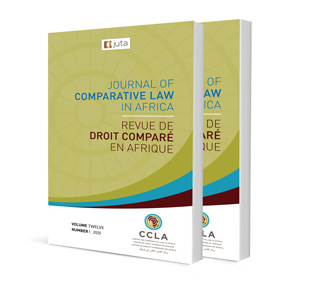
The jurisdiction of competition authorities over Peregrini respondent firms in South African competition law: Revisiting the foreign currency cartel case
Author: Precious Nonhlanhla Ndlovu
ISSN: 2521-2605
Affiliations: LLB (UFH), LLM (UWC), LLD. Senior Lecturer, Mercantile & Labour Law, University of the Western Cape
Source: Journal of Comparative Law in Africa, Volume 12 Special Edition, p. 267–297
https://doi.org/10.47348/JCLA/v12/2025-SEa10
Abstract
As it currently stands, the Competition Act 89 of 1998 only explicitly addresses subject-matter jurisdiction in s 3(1) by stipulating that its provisions apply “to all economic activities within or having an effect within” South Africa. When it comes to personal jurisdiction, the Act is silent. This means that the common law principles on personal jurisdiction must be applied. To that end, the forex cartel litigation served to clarify that personal jurisdiction is a mandatory requirement in South African competition law litigation involving peregrini respondent firms, on par with subject-matter jurisdiction. Because the Competition Act does not address the question of personal jurisdiction, the forex cartel litigation provided an opportunity to develop the common law on personal jurisdiction in competition law proceedings. The outcome of the forex cartel case is that personal jurisdiction can be satisfied if the Competition Commission, as prosecutor, can show that there are connecting factors between the prohibited conduct allegedly committed by peregrini respondents, and the Competition Tribunal, as the court of first instance. Considering the difficulties that the Competition Commission faced in establishing personal jurisdiction utilising common principles of personal jurisdiction in the forex cartel case, the legislature ought to consider amending the Competition Act to explicitly make provision for personal jurisdiction, in the way that subject-matter jurisdiction is statutorily defined. That said, the actual enforcement of these judgments against peregrini firms remains an issue to be determined in terms of the individual jurisdictions where such enforcement is sought.